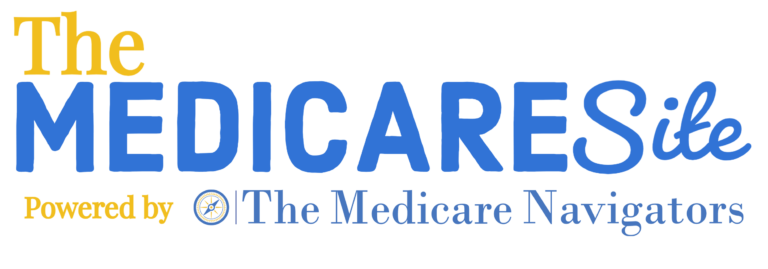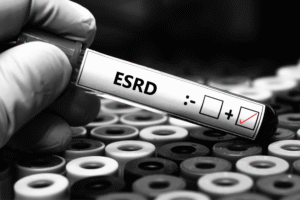Medicare may give people access to medical coverage, but there are still many expenses that beneficiaries are responsible for. These expenses can add up from monthly premiums, co-pays, co-insurance, and prescription drug costs. This can be a burden preventing beneficiaries with limited income and resources from getting care they need. People on limited incomes could get help paying for Medicare costs through the Medicare Savings Program. This is a huge benefit that helps them gain access to more care that they could otherwise not afford.
How can the Medicare Savings Program Help?
Medicare Savings Programs (MSPs) are administered by Medicaid for people on Medicare who have limited income and resources. For those who qualify, MSPs will pay their Medicare Part A and Part B premiums. Depending on their eligibility level, they may also help pay their other out-of-pocket Medicare expenses. These expenses can include Medicare Part A (Hospital Insurance) and Medicare Part B (Medical Insurance) deductibles, coinsurance, and copayments.
What are the coverage levels?
MSP levels can vary by state and not all of these may be available in each state, but generally there are 4 kinds of Medicare Savings Programs that this blog will cover.
Qualified Medicare Beneficiary Program (QMB)/ Full Dual Eligible
This Program is limited to individuals who meet the federal poverty level (+$20) but can vary by state. QMB helps pay for qualifying beneficiaries’ Medicare Part A premiums, Part B premiums, and deductibles, coinsurance, copayments, and the Part B penalty. QMB will also pay the premium for Part A if you haven’t worked 40 quarters.
Specified Low-Income Medicare Beneficiary Program (SLMB)
The SLMB Program is for those whose monthly income falls between 100-120% of the poverty level (+$20). SLMB helps pay for qualifying beneficiaries’ Medicare Part B premiums and the Part B penalty. In some states, SLMB includes Medicare deductibles, coinsurance, and copayments.
Qualified Individual Program (QI)
The QI program allows for an individual to have a little more income than QMB or SLMB to qualify. The income limits are between 121-135% of the federal poverty level (+$20). Those who qualify under the QI program receive help paying for their Medicare Part B premium. Like the other programs, they will also pay any Part B penalties.
Qualified Disabled and Working Individuals Program (QDWI)
QDWI is for people who are under age 65, disabled, and no longer entitled to free Medicare Hospital Insurance Part A solely because they successfully returned to work. They can qualify for QDWI if they continue to have their disabling impairment, sign up for Part A, and have an individual income limit of $5,105 ($6,899 Joint Married) and an individual resource limit of $4,000 ($6,000 joint married). QDWI program will pay for Part A premium. Check with our licensed agents to see if these amounts have changed.
How to apply for MSP?
Generally, applications for the Medicare Savings Programs are submitted through the local Medicaid agency. In Arizona, for instance, this is the Arizona Health Care Cost Containment System (AHCCCS). The Medicaid offices will generally have multiple ways to apply: by phone, online, or a printed application. You can also start application process for MSP by completing the Low-Income Subsidy application for Part D Extra Help. If you chose so, it will also send in your MSP application.
To qualify for Medicare Savings Programs, a person must have Medicare Part A and their income and resources must fall within the eligibility level for each level of coverage. It is important to call or fill out an application if you think you can qualify for savings – even if your income or resources are higher than the amounts listed. This could be because some resources or income may not be counted, and some states eliminate the resource limits.
Remember, states can vary on how they income or assets are counted. Some states exclude more of your monthly income than others. You can speak with one of our licensed agents to get assistance on income limits and how to apply.
MSP Approval, now what?
Once a beneficiary is awarded an MSP level, they will also automatically qualify for Part D Extra Help to help pay for prescription drug costs. See more on Extra Help and how it works in our latest blog, What is Extra Help? Eligibility for MSP is generally re-determined each year and if your income increases or decreases you can move up or down the levels, or out of the program altogether if you no longer qualify.
Enrollment Options/ Periods for MSP
The assistance received from the Medicare Savings Program also applies to enrollment in a Medicare Advantage plan. Qualifying for any MSP allows a beneficiary to enroll, change, or drop a plan outside of Medicare’s Annual Election Period (AEP). Using a Special Election Period, beneficiaries who qualify for MSP can make a change once each quarter during the first 3 quarters of the year. They can also make a change during AEP with an effective date of January 1st.
Aside from these quarterly changes, they can also add or change a plan if they have any change in their MSP status. This includes if they lose eligibility, gain eligibility, or if their eligibility level moves up or down the previous mentioned benefit levels. You can speak with a licensed agent to determine if you are in a valid enrollment period.
Going from Medicaid then gaining Medicare eligibility
If an individual is already on Medicaid and then gains Medicare eligibility, then they will automatically be awarded MSP. Once they qualify for Medicare, the individual will no longer be covered under Medicaid for prescription drugs and will need to enroll in Part D. If they are Full Dual, then some states may automatically enroll them in a Dual Special Needs Plan, but they still have the option to make a change to a plan of their choice.
CONTACT A FRIENDLY, LICENSED AGENT TODAY TO GET HELP WITH MEDICARE RELATED QUESTIONS AND COMPARE COVERAGE OPTIONS.






